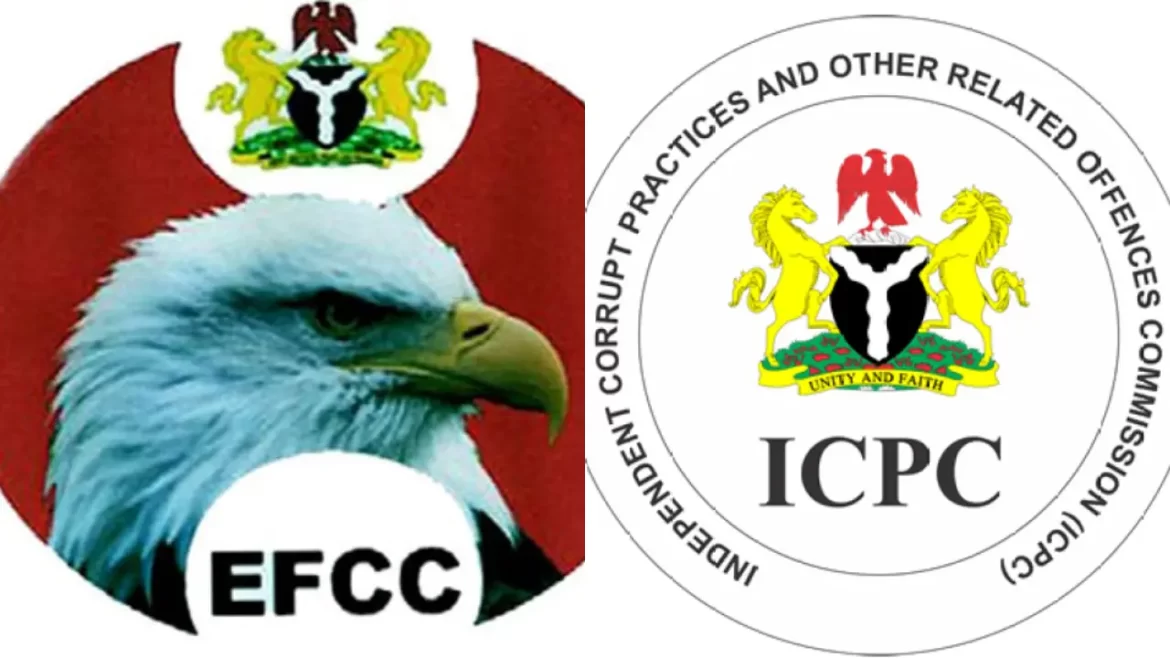652
By Tracy Moses
A civil society organisation, Good Governance Initiative (GGI), has called on Nigeria’s anti-corruption agencies to probe the financial activities of state basic education boards, with particular focus on the Benue State Universal Basic Education Board (SUBEB), over alleged diversion and misappropriation of public funds meant for basic education.
In a statement released on Thursday in Abuja, GGI President, Terngu Tor, urged the Economic and Financial Crimes Commission (EFCC) and the Independent Corrupt Practices and Other Related Offences Commission (ICPC) to take decisive steps to ensure transparency and accountability in the management of education resources nationwide.
Tor accused Benue SUBEB of entrenched financial irregularities and administrative inefficiency, despite what he described as “record-high budgetary allocations since 2023.”
“When this government assumed office, there was hope that SUBEB would be repositioned to deliver on its mandate,” he said. “Sadly, two years down the line, that optimism has been replaced by frustration following revelations of missing funds, payroll controversies, and open confrontation with the State Assembly.”
He referred to a December 2024 report of a Benue State House of Assembly ad-hoc committee, which reportedly indicted the board for failing to account for ₦2.1 billion released between December 2023 and June 2024. The committee, according to him, directed the SUBEB Chairperson, Dr. Grace Adagba, to refund the money and step aside pending investigation — directives she allegedly flouted.
“Dr. Adagba’s continuous defiance of legislative summons and refund orders demonstrates a blatant disregard for due process and accountability,” Tor stated. “This development calls into question the sincerity of the administration’s anti-corruption stance.”
He added that the situation worsened after the Assembly asked Governor Hyacinth Alia to suspend the SUBEB boss over alleged insubordination and financial impropriety, a move that further exposed deep-seated divisions within the board and aggravated the state’s education crisis.
GGI also drew attention to the board’s January 2024 introduction of an automated payroll system purportedly aimed at eliminating ghost workers. The group, however, claimed that the system was riddled with inconsistencies.
“Behind what was advertised as reform lies a troubling truth,” Tor said. “The same issues of ghost workers and unauthorized deductions persisted. What was branded as innovation became a smokescreen for deeper corruption.”
By mid-2025, some board members allegedly accused Dr. Adagba of running the agency in isolation and unilaterally approving contracts and policies.
“The board is now effectively a one-woman show,” an internal source was quoted as saying. “Contract awards happen without consultation, and anyone seeking accountability is labelled an enemy.”
GGI further alleged that this breakdown in governance has encouraged contract inflation, duplicate payments, and selective patronage of contractors aligned with insiders, all at the expense of school infrastructure and teacher welfare.
“While billions disappear on paper, public schools across Benue’s 23 local government areas remain in ruins, with leaking roofs, broken desks, inadequate learning materials, and unpaid or untrained teachers,” Tor lamented.
The group therefore demanded the immediate release of the audit report that prompted the ₦2.1 billion refund order, alongside details of the payroll automation process, including the number of ghost workers identified and funds recovered.
As of press time, the Benue State Government had not made any official comment on whether the missing funds were recovered or whether disciplinary measures had been taken.
GGI maintained that the unfolding scandal points to a larger systemic failure in Nigeria’s basic education sector, driven by political interference, weak institutional oversight, and opaque procurement practices.
“Unless urgent reforms are undertaken,” the statement concluded, “SUBEB will continue to serve as a cash cow for a privileged few, while the state’s schools deteriorate and the future of its children is stolen.”



